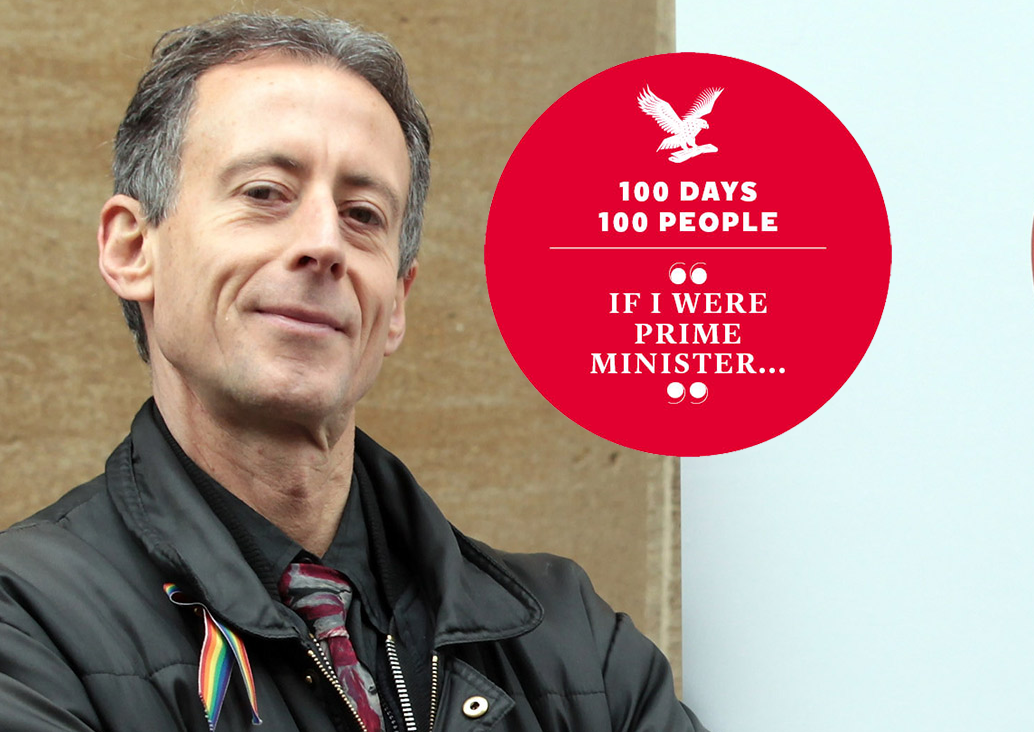If I were Prime Minister: I'd remind the rich that with great wealth comes great responsibility
Our series in the run-up to the General Election – 100 days, 100 contributors, but no politicians – continues with the political campaigner


Your support helps us to tell the story
From reproductive rights to climate change to Big Tech, The Independent is on the ground when the story is developing. Whether it's investigating the financials of Elon Musk's pro-Trump PAC or producing our latest documentary, 'The A Word', which shines a light on the American women fighting for reproductive rights, we know how important it is to parse out the facts from the messaging.
At such a critical moment in US history, we need reporters on the ground. Your donation allows us to keep sending journalists to speak to both sides of the story.
The Independent is trusted by Americans across the entire political spectrum. And unlike many other quality news outlets, we choose not to lock Americans out of our reporting and analysis with paywalls. We believe quality journalism should be available to everyone, paid for by those who can afford it.
Your support makes all the difference.If I were Prime Minister, I’d dump austerity and cut the deficit, without damaging public services, by five simple measures.
First, I'd axe Trident, which would save £100 billion. Then I'd close corporate tax avoidance loopholes (raising £20+ billion pa) and end pension tax relief on people earning more than £100,000 (raising £20+ billion pa). I’d also introduce a financial transaction tax of 0.05% on currency, share, bond and commodity transactions (raising £50+ billion pa) and a one-off average 20% wealth tax on the assets of the richest 5%, with the least rich of the rich paying 2% and the most rich 25% (raising £400 billion).
Total: £600 billion raised!
This sum is enough to pay off the current annual government deficit more than six times over. It could also clear nearly half the national debt, which would slash by 40 per cent UK debt interest payments of £48 billion a year — a vast sum that would be better spent on housing, schools, hospitals and job creation.
Alternatively, and even more useful in terms of reviving the economy and thereby solving the deficit long-term, the £600 billion, or at least part of it, would be used to fund the proposed Green New Deal.
Modelled on Roosevelt’s New Deal, which got the US back to work and ended the Great Depression, the Green New Deal would create hundreds of thousands of green jobs in energy conservation, renewable energy, public transport and affordable homes; simultaneously meeting people’s needs, helping remedy climate destruction and kick-starting an enduring economic revitalisation.
By getting people off the dole and into work, the Green New Deal would cut the cost of benefits and get more people paying income tax, national insurance and council tax; thereby boosting government revenue and reducing the deficit. People with jobs have more disposable income to spend on goods and services. This increases demand, which would generate new businesses — creating yet more jobs and more tax to fund public services.
By investing in sustainable economics and cutting-edge green technologies, we’d also open up new export markets and ensure Britain’s economic revival for decades to come.
The very rich won’t like the new taxes, but with great wealth comes great responsibility. The mega rich have the financial capacity to help the country out of the still precarious situation we are in. They benefited disproportionately from the boom times. Now that times are harder they should contribute disproportionately to get the economy back in shape.
Put bluntly: The super rich have a patriotic duty to help save the economy by paying more tax. If they love Britain, they will be willing to do this in order to help us overcome the economic difficulties we face.
Paradoxically, contributing more tax is in the interest of people with huge wealth. If the economy falters, their losses will be even more than the greater tax they are being asked to pay. By giving more to the exchequer now they would be doing the morally right thing for the country and their fellow citizens. They would also, by helping save and revive the economy, preserve much of their own riches. It’s enlightened self-interest.
Join our commenting forum
Join thought-provoking conversations, follow other Independent readers and see their replies
Comments